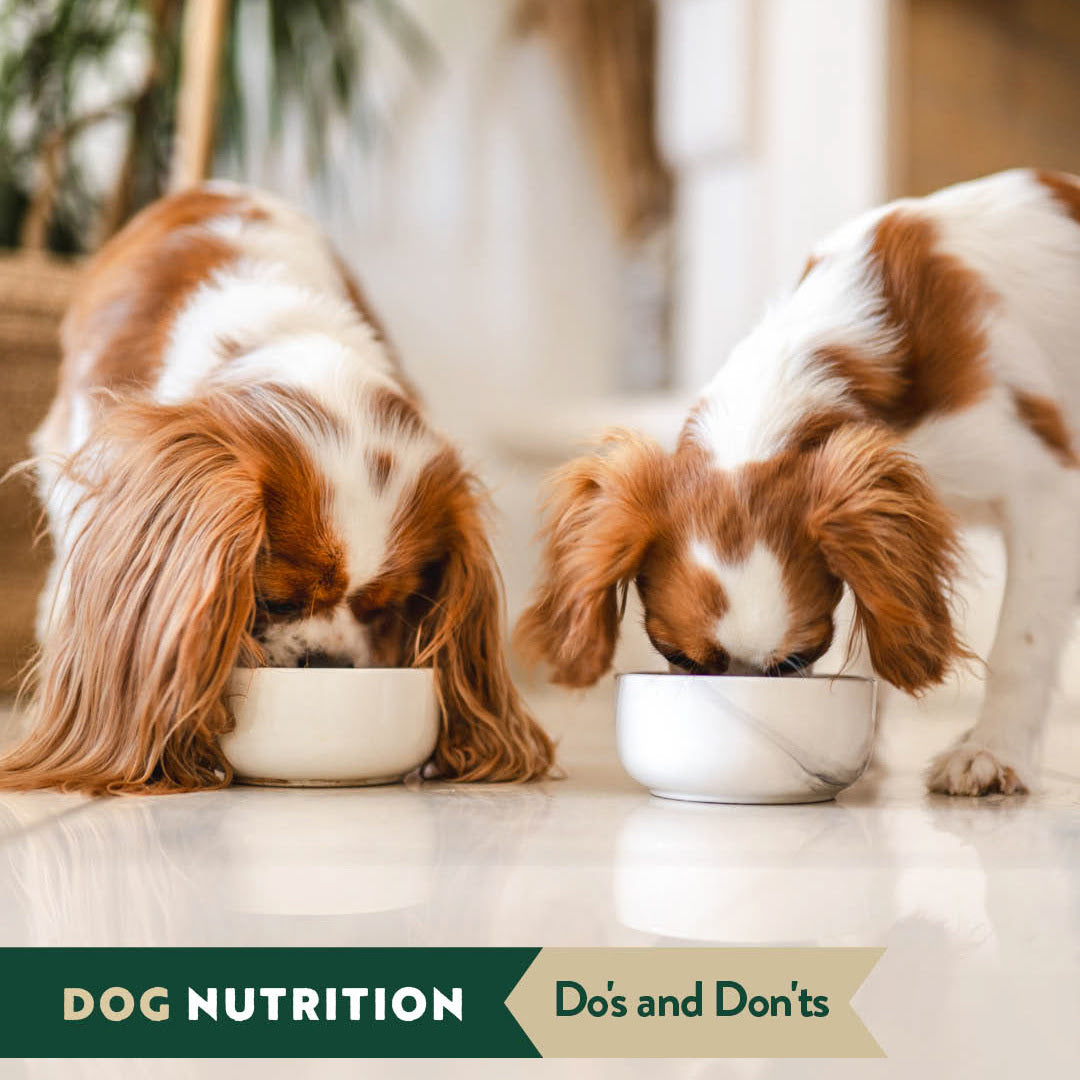Feeding your pup properly is key to their health and happiness. A balanced diet supports everything from energy levels to longevity, while poor nutrition can cause serious health issues. Here’s a simple guide on the do’s and don’ts of pet nutrition to help you make the best choices for your furry friend.
Pet Nutrition Do's:
1. Do Choose High-Quality Pet Food
Pick high-quality pet food with real meat, fish, or poultry as the first ingredient. Avoid ambiguous terms such as meat meal or animal by-products. Your pup should have a well-balanced diet (rich in protein, healthy fats, and essential carbohydrates) to promote better digestion, energy, and overall health.
2. Do Watch Portion Sizes
Prevent obesity by sticking to proper portion sizes based on your pet’s age, size, and activity level. Follow the guidelines on pet food labels or get advice from your vet to avoid overfeeding, which can lead to serious health problems. Here is a link to an article that can help you get a basic idea on how much you should be feeding your dog.
3. Do Practice Healthy Treating
Treats with limited number of high-quality, simple ingredients healthy ingredients can be excellent supplements to your pet's diet. Make sure treats make up no more than 10% of their daily calories to keep your pet at a healthy weight. We recommend anything from Northern Biscuit's catalogue of flavours as a healthy pet treats.
4. Do Rotate Protein Sources
Providing variety in your pet’s diet helps prevent food sensitivities and nutritional imbalances. Rotate between high-quality proteins like chicken, fish, lamb, and beef to ensure a balanced intake of nutrients. For a diverse set of protein rich treats, check out Northern Biscuit's bundle packs.
Pet Nutrition Don'ts:
1. Don’t Feed Table Scraps
Avoid feeding your pet table scraps, which can contribute to weight gain and expose them to toxic foods like onions, garlic, chocolate, and grapes. These foods can lead to serious health risks or even be fatal to pets. For a more extensive list on what to avoid check out this article by the American Humane Society.
2. Don’t Overfeed Your Pet
Overfeeding causes weight gain, leading to health problems like diabetes, heart disease, and joint issues. Measure your pet’s food carefully and stick to a feeding schedule to maintain a healthy weight.
3. Don’t Ignore Food Allergies
If your pet shows signs of food allergies, such as itching, ear infections, or digestive problems, don't ignore them. Work with your vet to identify allergens and consider switching to hypoallergenic food if needed.
Bonus Tip: Consult Your Veterinarian Regularly
Your pet’s nutritional needs can change over time due to age, health conditions, or lifestyle. Regular vet visits are essential to ensuring your pet is on the right diet and receiving the nutrients they need. Your vet can also recommend special diets or supplements tailored to your pet's specific needs, helping you stay on top of their overall health.
Love learning about your dogs? Sign up for our newsletter, “Woof Weekly,” for the latest pet tips, tricks, exclusive deals, and fun content to keep your furry friend happy and healthy.
Keywords: pet nutrition, pet food do’s and don’ts, healthy pet diet, balanced diet for pets, best pet food, healthy treats for pets, prevent obesity in pets, pet food allergies, pet care tips, pet feeding tips, best diet for pets, pet nutrition advice



